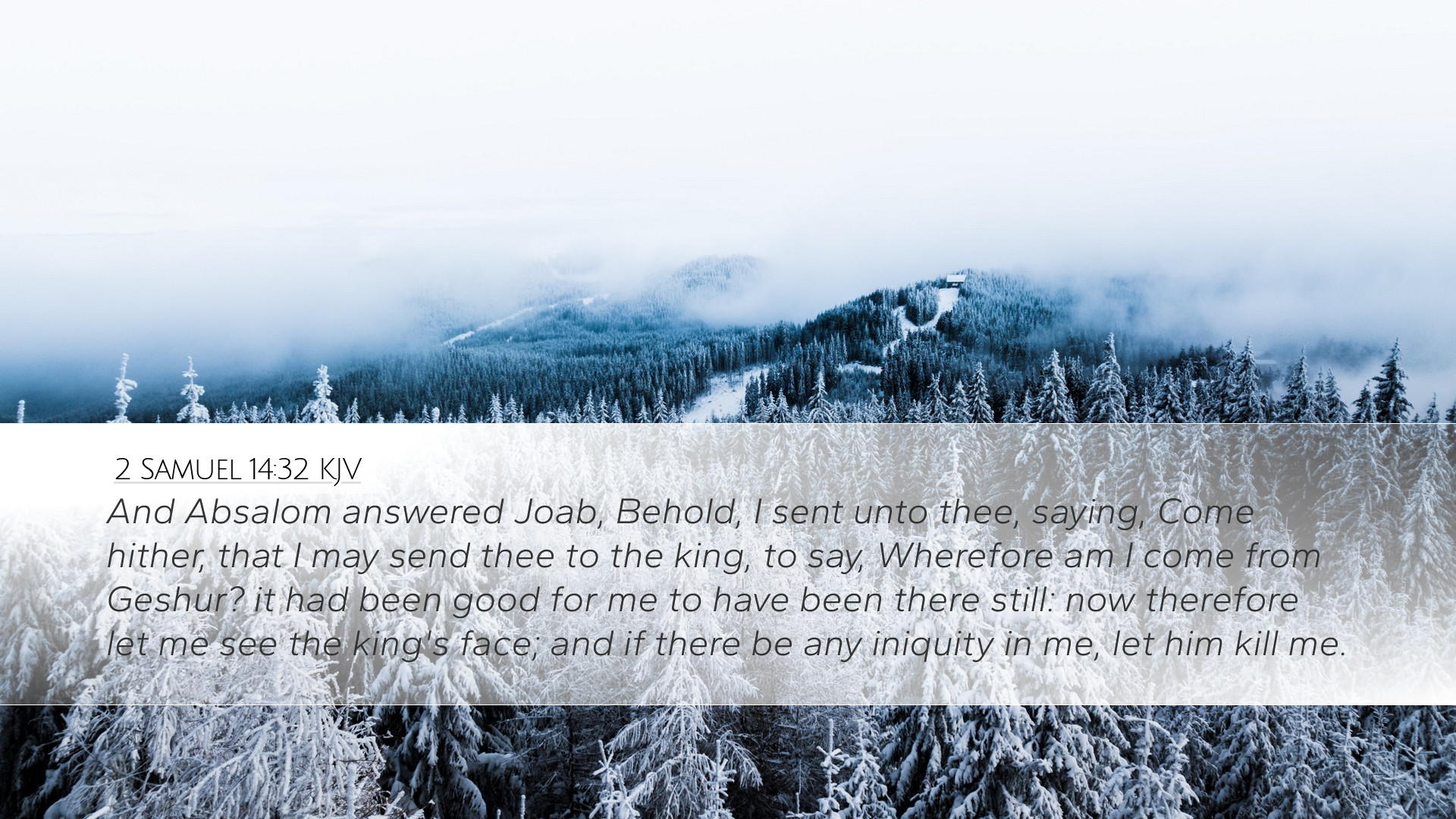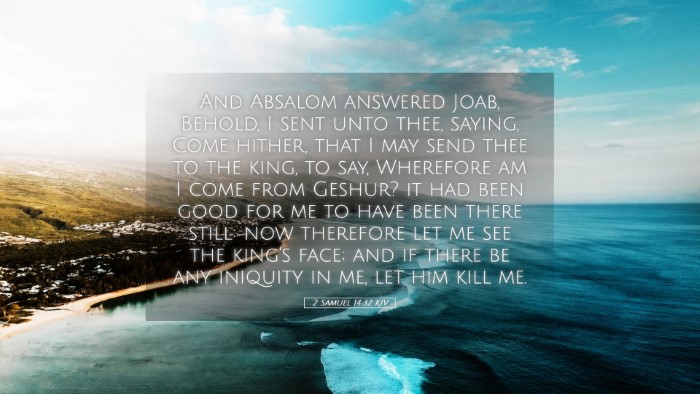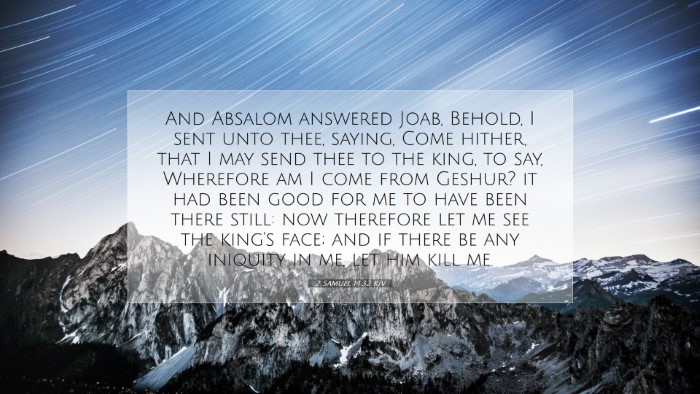Old Testament
Genesis Exodus Leviticus Numbers Deuteronomy Joshua Judges Ruth 1 Samuel 2 Samuel 1 Kings 2 Kings 1 Chronicles 2 Chronicles Ezra Nehemiah Esther Job Psalms Proverbs Ecclesiastes Song of Solomon Isaiah Jeremiah Lamentations Ezekiel Daniel Hosea Joel Amos Obadiah Jonah Micah Nahum Habakkuk Zephaniah Haggai Zechariah MalachiVerse
2 Samuel 14:1 2 Samuel 14:2 2 Samuel 14:3 2 Samuel 14:4 2 Samuel 14:5 2 Samuel 14:6 2 Samuel 14:7 2 Samuel 14:8 2 Samuel 14:9 2 Samuel 14:10 2 Samuel 14:11 2 Samuel 14:12 2 Samuel 14:13 2 Samuel 14:14 2 Samuel 14:15 2 Samuel 14:16 2 Samuel 14:17 2 Samuel 14:18 2 Samuel 14:19 2 Samuel 14:20 2 Samuel 14:21 2 Samuel 14:22 2 Samuel 14:23 2 Samuel 14:24 2 Samuel 14:25 2 Samuel 14:26 2 Samuel 14:27 2 Samuel 14:28 2 Samuel 14:29 2 Samuel 14:30 2 Samuel 14:31 2 Samuel 14:32 2 Samuel 14:33

